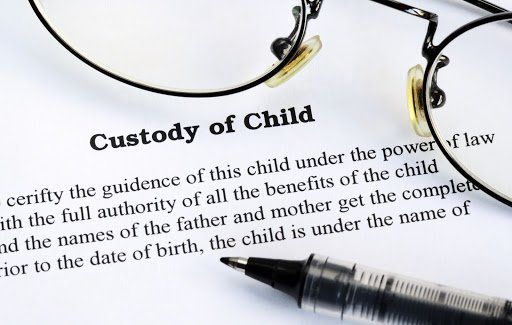Blog Layout
What Are the Signs You May Be in an Abusive Marriage or Relationship?
Aug 04, 2022
Abusive marriages and relationships have many characteristics. The abuse does not have to come in a strictly physical or emotional place. However, sometimes when you’re inside an abusive marriage or relationship, it can be difficult to realize the gravity of the situation. You can only see what’s in front of you and assume what is happening is normal.
For those trapped in the cycle of abuse and thinking about contacting a family law firm in Burlington County, NJ, here are some warning signs that will make you aware that you are in an abusive marriage or relationship.
What Constitutes Abusive Behavior?
For many people, knowing what constitutes abuse and what they can write off as “a bad day at work” or any number of other explanations becomes the first step towards leaving. Abusive behavior in a relationship, commonly referred to as domestic violence, intimate partner violation, or dating abuse, involves one partner’s aggressive actions toward the other. These actions include physical, sexual, psychological, emotional, or mental harm to the other party.
Sexual Abuse
Sexual abuse within a marriage is a possible form of abuse. It can range from forcing their partner into engaging in sexual activities when they do not want to, disregarding their preferences or feelings, or even pressuring them into dressing a specific way.
Psychological Abuse
Partners suffering from psychological or emotional abuse often don’t show physical signs of trauma or abuse. However, this type can have far-reaching effects on how the victim views the world, themselves, and their place in it. Often, the emotional toll levied by this type of abuse can ruin a person’s self-esteem and make it next to impossible to leave the marriage on their own.
Psychological abuse comes in various forms, with the most common including:
- Humiliation — criticizing everything their partner does, name-calling, belittling accomplishments, and ruining someone’s self-worth or esteem.
- Control — the abuser controls every aspect of their partner’s life: who they hang out with, who they can talk to, and demanding all of the attention be on them are signs you are in a controlling relationship.
- Gaslighting — a partner takes all of the accusations you levied at them and turns them around on the other person. They make a spouse feel like they are the crazy one, and it is all in their head.
- Neglect and Isolation — in an abusive marriage, one partner will isolate the other from loved ones, making them feel like they are alone in this. They try to cut their spouse off from outlets that may guide them out of the marriage or relationship.
Physical Abuse
In physically abusive relationships, your partner will take their frustrations out on you. During an abusive marriage, the periods of violence can be interspersed with periods of true love and affection, making you feel that the physical outbursts are your fault and that if you could do things differently, then everything would be better. It is not acceptable to put a hand on your significant other or spouse, no matter what the situation.
The Most Common Signs You Are in an Abusive Marriage
While an abusive marriage looks different based on a wide range of factors, you can still be on the lookout for some telltale signs.
- You aren’t in charge of making your own decisions
- You feel like you are constantly apologizing for your actions and are afraid of their reaction
- You avoid talking about your relationship with close friends and family
- Your partner engages in “love bombing” — giving lavishing gifts and praise after abusive behavior
- You think everything wrong with the relationship is exclusively your fault
- Every disagreement turns into a screaming match
- The version of your partner you get changes by the day
- You lost confidence in how you view the world
- You don’t remember who you were before the relationship
What Does the Cycle of Abuse Look Like?

What You Can Do Now if You Are a Victim of Domestic Violence
Getting the help you need to leave an abusive partner, file for divorce, and protect yourself and your children can feel overwhelming, but you have resources that can help make the process less stressful.
Contacting your local domestic violence helpline can help with immediate needs, while partnering with an experienced divorce lawyer in Burlington County, NJ, can get the process started. Berg & Pearson, PC
has the experience to help navigate the complex and most likely heated divorce proceedings and give you the support you need to see it through. Contact our team for your first consultation today at 856-251-0080. You may also want to contact the National Domestic Violence Hotline at 1-800-799-7233 or visit their website
for additional information.
Contact Us Today!
Contact us directly to schedule your FREE phone consultation!
(856) 251-0080
Contact Us
Thank you for contacting us.
We will get back to you as soon as possible
We will get back to you as soon as possible
Oops, there was an error sending your message.
Please try again later
Please try again later
Mt. Laurel Location
Berg & Pearson PC
Fax: 856-624-3539
20,000 Horizon Way
Suite 500
Mt. Laurel, NJ 08054
Tel:
(856) 251-0080
Suite 500
Mt. Laurel, NJ 08054
Fax: 856-624-3539
Sewell Location
Berg & Pearson PC
Fax: 856-624-3539
591 Mantua Blvd
Suite 201
Sewell, NJ 08080
Tel:
(856) 251-0080
Suite 201
Sewell, NJ 08080
Fax: 856-624-3539
Privacy Policy
| Do Not Share My Information
| Conditions of Use
| Notice and Take Down Policy
| Website Accessibility Policy
© 2024
The content on this website is owned by us and our licensors. Do not copy any content (including images) without our consent.








